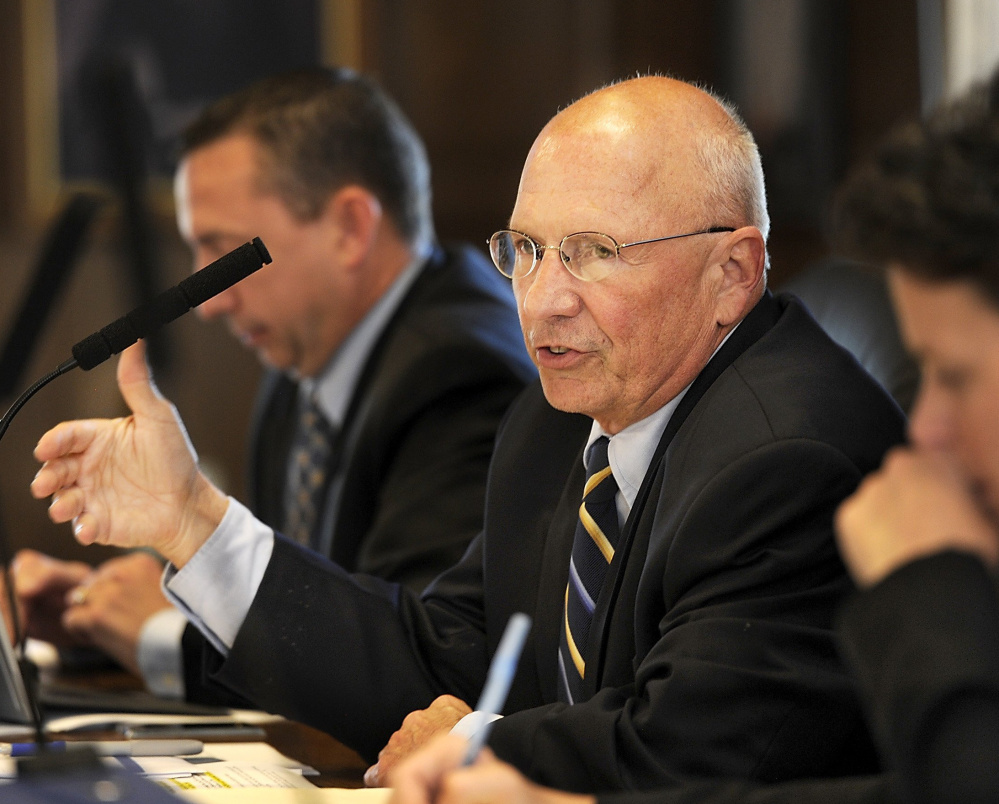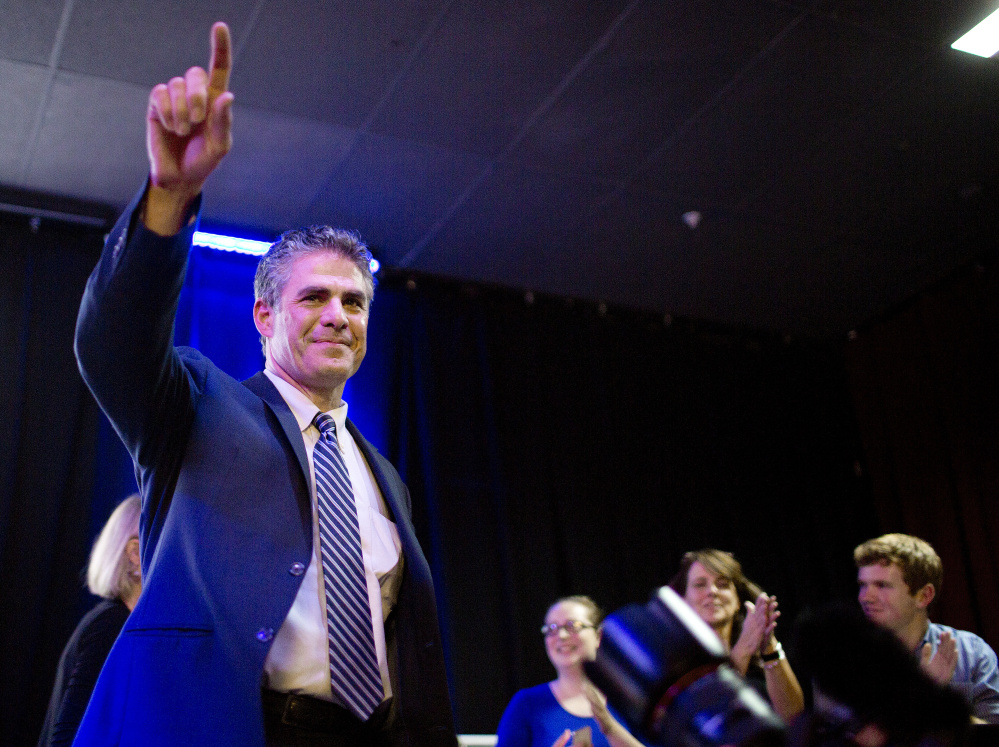Four years after Portland switched from a ceremonial mayor to one who is popularly elected, the City Council has effectively reasserted itself as a force to be reckoned with, rather than marginalized, by working to oust the first person to hold that title in 88 years – a rare electoral rejection of an incumbent in Maine’s largest city.
Tension between the council and Mayor Michael Brennan, the first popularly elected mayor since 1923, simmered throughout his four-year term. It came to a boil this summer, when four sitting councilors not only endorsed challenger and eventual winner Ethan Strimling, but also sharply criticized the incumbent, arguing that he didn’t listen to their concerns and priorities.
It was a rare, if not unprecedented, move in Portland.
“It’s strange. I’ve never seen a race in Portland where so many elected officeholders were behind the incumbent or challenger,” said state Rep. Ben Chipman, one of Portland’s few elected officials not to endorse a candidate. “It’s very rare an incumbent gets voted out of office. Usually it’s because of a scandal or the economy crashed. We really don’t have that situation in this case.”
By playing such a pivotal role in the election, councilors in particular reminded Brennan, and future mayors, that at the end of the day, the mayor is one of nine votes on the council, which has three other at-large members who are elected by voters citywide. They also appear to have made a statement that the primary role of the mayor is to listen to, lead and speak for the council.
And the public agreed, voting 51 percent in favor of Strimling in the three-way race for mayor.
“I would predict Mayor Strimling is going to be particularly attentive to the tone, direction and perspective of the City Council, because he understands that is the road to a successful mayorship. You can’t do it alone,” said Tom Valleau, who served on the 12-member Charter Commission that in 2010 recommended the switch to a popularly elected mayor.
Until voters approved that change in 2011, the council had appointed its own mayor – a largely ceremonial position. The new position comes with little additional power, because day-to-day operations are handled by the city manager. However, the mayor serves a four-year term, earns a $70,000 annual salary and works full time in an office at City Hall, allowing him or her to focus on more long-range policy goals.
The switch rankled some longtime councilors, who struggled to accept the new power structure.
One of the biggest criticisms of Brennan was that he was mostly concerned with his own policy initiatives, such as establishing a citywide minimum wage, as well as educational and food policy, largely independent of the council. He seemed more comfortable and connected with the state’s legislative delegation and the inner workings of Augusta, rather than with the council and City Hall.
Friction developed when Brennan told councilors that only he could decide what business items made it to the agenda, only to have the council push back, accusing him of seeking a “pocket veto” over issues they cared about. The council reasserted itself in a formal vote.
Brennan continues to struggle with the parliamentary procedure used to run City Council meetings.
Nicholas Mavodones, the council’s longest-serving member who was just re-elected to a seventh term, said the public was left with the impression that its elected officials are not focused on street-level issues, such as public safety, trash collection and fixing roads, when the mayor focuses on his own policy initiatives without first getting buy-in from the council.
There is “no doubt (Brennan) has worked hard for the four years he’s been mayor,” Mavodones said. “His initiatives are very important to him. It just seems that over the last year or two there was less connection with the council. I don’t think Michael felt the initiatives of councilors and the initiatives of our constituents were as important as his initiatives.”
During the 2015 campaign for mayor, Brennan and Strimling shared similar policy goals, but differed sharply in style and their view of the mayor’s role. Strimling campaigned on the promise of acting more like a chairman of the board of directors, acknowledging that nothing can get accomplished unless the board agrees in principle to a particular policy direction. He also drew a connection between the high rate of turnover at City Hall and friction between the mayor and the council.
Brennan, however, argued that he was not obligated to give up his voice as an elected official, believing he had a mandate from voters to pursue his own policies. Over the course of the campaign, he pointed to his high-profile clashes with Gov. Paul LePage and argued that a vote for Strimling was a vote to return to the old mayoral system. He also denied that there was a division between himself and the council.
School Board member Laurie Davis and city councilors David Brenerman and Justin Costa amplified that view when they endorsed Brennan late in the campaign.
Davis, who served on the Charter Commission, said Brennan was fulfilling the group’s vision of having a “policy mayor.”
“We really saw the mayor’s position as one that faced outward from City Hall,” she said. “It’s a work in progress. I agree wholeheartedly that if we change for the sake of change, it will simply slow down the development and the momentum we have gotten.”
But it seems the election results are prompting some skeptics of the popularly elected mayor position, such as Councilor Ed Suslovic, to give it another chance. Suslovic had blamed the departure of interim City Manager Sheila Hill-Christian – a City Hall favorite – on having an elected mayor with no executive authority, saying the city’s hybrid mayor was “the worst of both worlds.”
Not so any more, Suslovic said, especially with a strong city manager in Jon Jennings working with a “different person with a different style” in the mayor’s chair.
“I think of it as a way to give the elected mayor position another chance,” Suslovic said.
Send questions/comments to the editors.




